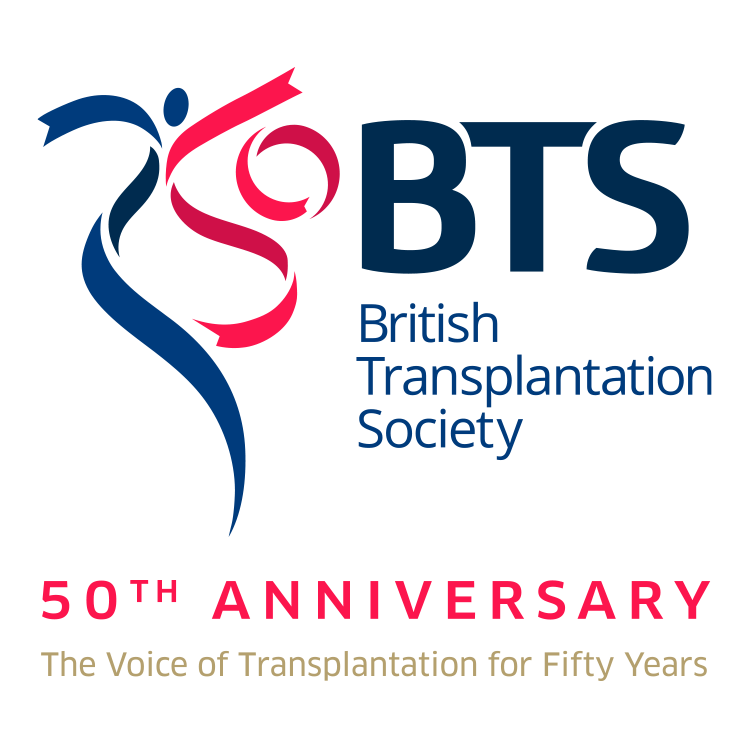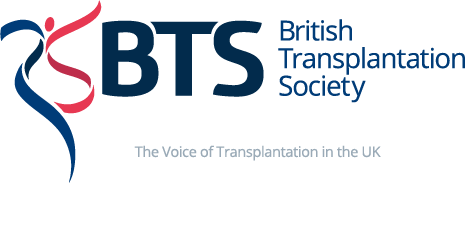APOL1 testing in Potential Living Kidney Donors
Introduction and the Need for Guidelines
The presence of two apolipoprotein L1 (APOL1) high-risk variants (G1/G2) is associated with an increased risk of chronic kidney disease (CKD) and kidney failure, and these variants are found almost exclusively in people of African or Caribbean heritage (1-3). In addition to an increased risk of kidney disease, individuals with two high-risk APOL1 variants who develop CKD appear to progress more rapidly to kidney failure than those without two high-risk variants (4).
For living kidney donors, there is limited evidence to suggest increased rates of kidney failure after donation associated with two high-risk APOL1 genes compared with 0 or 1 (5). More research is needed to better determine the risk of kidney disease among donors who have two high-risk APOL1 alleles, and two USA studies are underway (APOL1 Long-term Kidney Transplantation Outcomes Network (APOLLO) and Living-donor Extended Time Outcomes (LETO)).
Given the excess risk of kidney failure associated with specific APOL1 genotypes, this guideline makes recommendations regarding APOL1 genotyping as a part of the assessment and communication of risk in the evaluation of all potential living kidney donors of African and Caribbean heritage.
The presence of two high-risk variants of APOL1 is strongly associated with CKD but it does not guarantee the development of kidney disease. Whether someone with two high-risk variants goes on to develop kidney failure is likely to be influenced by socioeconomic factors, environmental exposures and infections (6, 7).
Process of writing and methodology
The Guideline has been written under the auspices of the BTS Guidelines and Standards Committee, in line with the British Transplant Society Guideline Development Policy (8). The writing group first met in May 2021. Contributing authors include a broad representation of the multi-disciplinary team involved in patient care from different NHS Trusts and people of African and Caribbean heritage with lived experience of living kidney donor assessment and transplantation.
A review of the relevant literature was performed by the chair, and the recommendations contained within the guideline resulted from a collective decision reached following discussion. The focus of this guideline is APOL1 genetic testing in people of African and Caribbean heritage who are being assessed for living kidney donation.
This guideline is designed to be used by healthcare professionals working in the out-patient setting with people in assessment for living kidney donation, their significant others and carers.
Contributing Authors
Dr Pippa Bailey, Associate Professor of Renal Medicine, University of Bristol, and Honorary Consultant Nephrologist, North Bristol NHS Trust (Chair)
Dr Refik Gökmen, Consultant Nephrologist, Guys and St Thomas’ NHS Foundation Trust (Writing group member)
Dr Kate Bramham, Reader of Nephrology & Maternal Medicine, King’s College London and Honorary Consultant Nephrologist, King’s College Hospital (Writing group member)
Ms Dela Idowu, Contributor with lived experience, Founder and CEO Gift of Living Donation (GOLD) (Writing group member)
Ms Primrose Granville, Contributor with lived experience, Genomics England Ambassador (Writing group member)
Dr Rachel Hilton, Consultant Nephrologist, Guys and St Thomas’ NHS Foundation Trust (Reviewer of drafted guidance)
Dr Graham Lipkin, Consultant Nephrologist, University Hospitals Birmingham NHS Foundation Trust, and Honorary Senior Lecturer, University of Birmingham (Reviewer of drafted guidance)
Conflicts of Interest
No conflicts of interest were declared.
Grading of Recommendations
These guidelines represent consensus opinion from clinical experts and people with lived experience of transplantation and living kidney donor assessment in the United Kingdom. The Grading of Recommendations Assessment, Development and Evaluation (GRADE) system has been used to rate the strength of evidence and recommendations, consistent with other guidelines issued by the British Transplantation Society and other international, organisations. Explicit recommendations represent a balance between benefits and risks, burden, and cost.
The quality of evidence has been graded as:
A (high)
B (moderate)
C (low)
D (very low)
Grade A High-quality evidence derived from consistent results from well-performed randomised controlled trials, or overwhelming evidence from another source (for example, well-executed observational trials with very strong effects).
Grade B Moderate quality evidence from randomised trials that are compromised by flaws in conduct, consistency, indirectness, imprecise estimates, reporting bias or a combination of these limitations, or evidence from other studies with notable strength.
Grade C Low-quality evidence from observational studies, or controlled trials with significant limitations.
Grade D Evidence is based on case studies or expert opinion.
Level 1 Strong recommendation, the benefits of an intervention clearly outweigh the risks for most, if not all patients.
Level 2 Weaker recommendation, where the risks and benefits are less certain or more closely balanced.
Abbreviations
| APOL1 | Apolipoprotein L1 |
| APOLLO | APOL1 Long-term Kidney Transplantation Outcomes Network |
| CKD | Chronic kidney disease |
| LETO | Living-donor Extended Time Outcomes |
Disclaimer
This document provides a guide to best practice, which inevitably evolves over time. All clinicians involved in these aspects of living kidney donor assessment and transplantation need to undertake clinical care on an individualised basis and keep up to date with changes in the practice of clinical medicine.
These guidelines represent the collective opinions of experts in the field and do not have the force of law. They contain information/guidance for use by practitioners as a best practice tool. It follows that the guidelines should be interpreted in the spirit rather than the letter of their contents. The opinions presented are subject to change and should not be used in isolation to define the management of any individual patient.
The guidelines are not designed to be prescriptive, nor to define a standard of care. The British Transplantation Society cannot attest to the accuracy, completeness or currency of the opinions contained herein and does not accept responsibility or liability for any loss or damage caused to any practitioner or any third party as a result of any reliance being placed on the guidelines or as a result of any inaccurate or misleading opinion contained in the guidelines.
Statements of recommendations
- We recommend offering APOL1 genotyping as part of the assessment and communication of donor risk early in the evaluation of all potential donors of African heritage (1B).
- Counselling of potential living kidney donors should include the increased lifetime risk of chronic kidney disease (CKD) associated with having two high-risk APOL1 alleles alongside the discussion of other known risk factors. The presence of two high-risk APOL1 alleles is of particular concern in younger donors. We recommend that individuals aged <60 years who have two high-risk APOL1 variants are not considered medically suitable for kidney donation (1C).
- We recommend that the potential recipient of a kidney from a donor carrying two high-risk APOL1 alleles be informed of the potential impact on graft survival in addition to other relevant factors (1C).
What is the test?
Two Apolipoprotein 1 (APOL1) gene variants (G1 and G2) are alleles associated with an increased risk of CKD in people of African heritage. The genetic test looks at whether someone has any of these high-risk APOL1 gene variants. The test report would indicate if someone has one, two or no high-risk allele variants.
Which donors should be tested?
World prevalence studies have suggested the following prevalence of at least one high-risk allele: Nigeria 61%, Ghana 54%, USA 37%, South Africa 28%, Senegal 27%, Cameroon 27%, Mozambique 23%, Congo 16%, Central African Republic 15%, Brazil 13%, Kenya 9% (1-3, 9).
For testing for potential living donors, all of the following eligibility criteria must be met for testing:
- Individual is being assessed for living kidney donation
- Individual is of African heritage defined as individuals who are black and who are of African, African American, Brazilian, or Caribbean heritage. For British Citizens, this includes individuals who self-identify as Black/African/Caribbean/Black British according to the Office for National Statistics ethnic group categories. If someone has mixed heritage, they only require testing if both parents have African heritage.
- Individual has undergone counselling and understands the indications and implications of testing and has provided consent. Patient information leaflets are available to aid counselling.
A small percentage of donors who are non-African could still possess APOL1 renal-risk variants due to African heritage they were unaware of or did not report.
When should potential donors be offered APOL1 testing?
We recommend that APOL1 allele testing is performed after a potential living donor has undergone basic biochemical, tissue type and blood group testing but before exposing the donor to ionising radiation e.g., CT renal angiogram.
What does having two high-risk APOL1 variants mean for a potential donor?
Two APOL1 gene variants (G1/G2) are associated with an increased risk of kidney failure in people with African heritage (1-3). In the US general population in a prospective cohort study of 3067 African Americans, individuals who carried two APOL1 gene mutations had a risk of kidney failure 1.88 times that of those with 0 or 1 high-risk allele. The overall incidence of CKD was approximately 7.94 events/1,000 person-years among participants with 0 or 1 high-risk allele and 11.64 events/1,000 person-years among those with two high-risk alleles. Those with two high-risk APOL1 variants who develop CKD also appear to progress more rapidly to kidney failure than those without these high-risk variants (4).
For donors, reports suggest increased rates of kidney failure after donation associated with two high-risk APOL1 genes compared with 0 or 1 (5). Long-term outcomes were assessed in a small study including 136 African American living kidney donors (5); as in the general population, 14% (19/136) had APOL1 high-risk genotypes (with 2 renal-risk variants) and 86% low-risk genotypes (0/1 renal-risk variant). 11% (2/19) of previously healthy living kidney donors with APOL1 high-risk genotypes developed kidney failure and 67% developed an eGFR <60 ml/min/1.73 m2 after 12 year median follow-up. None of the 117 APOL1 low-risk genotype donors developed kidney failure and only 36% had a follow-up eGFR <60 ml/min/1.73 m2 (p=0.01). This was a very small study and so more research is needed into the risk of kidney failure among donors who have two high-risk APOL1 alleles. The risk of declining kidney function and proteinuria after donation is currently under investigation in African American donors as part of the USA APOL1 Long-term Kidney Transplantation Outcomes Network (APOLLO) study (https://clinicaltrials.gov/ct2/show/NCT03615235). However, the APOLLO study is not powered to detect differences in CKD or kidney failure between those with and without two high-risk gene variants and follow-up is insufficient to determine these outcomes. An APOLLO Ancillary Study entitled Living-donor Extended Time Outcomes (LETO) started in June 2019. It aims to enrol 1,100 African American living kidney donors who donated between 2001 and 2005. It will use registry outcome data up to 2025 to determine whether living kidney donors with two APOL1 high-risk variants are at higher risk of developing CKD 20 years after donation.
The presence of 2 high-risk variants of APOL1 is strongly associated with CKD but it does not guarantee the development of kidney disease, and we currently don’t know which individuals of those with the high-risk variants are likely to get kidney disease and which aren’t. Whether someone with two high-risk variants goes on to develop kidney failure is likely to be influenced by socioeconomic factors, environmental exposures and infections (6, 7).
Many centres have age-related criteria with respect to APOL1 results and progression as a donor. Some centres do not allow individuals with two high-risk APOL1 variants who are <50 years of age to donate (10). After age 60, similar long-term renal outcomes exist in European American and African American living kidney donors (11). Therefore, we recommend that donation is discouraged from younger individuals with two high-risk APOL1 variants.
Can donors proceed without APOL1 testing?
We suggest living donor risk assessment is not complete without APOL1 testing. We suggest that individuals ≥60 years old who decline testing, could proceed with donation if they are counselled regarding a possible increased lifetime risk of kidney failure.
Counselling
There is a risk that becoming aware that one has an increased lifetime risk of kidney disease (whether one chooses to donate or not) results in anxiety/health anxiety for an individual. The UK has an established genetic counselling programme available to support individuals considering donation. In addition, living kidney donors are already informed that the process of assessment could identify as yet unidentified health problems.
We recommend that individuals are informed of our current understanding of the risk of kidney disease in the presence of two high-risk APOL1 variants, including the 11% risk of kidney failure 12 years after donation that was reported in one study (5) (detailed above). Individuals must also be told that not all individuals who have two high-risk APOL1 variants will develop kidney disease, and a second insult appears to be required to cause the deterioration in kidney function.
Individuals found to have two high-risk APOL1 variants should be offered education about risk factors for CKD and an annual assessment of kidney function in primary care. We recommend that individuals aged <60 years who have two high-risk APOL1 variants are not approved for kidney donation.
The UK has clear guidance on whether genetic test results need to be disclosed to insurance companies: according to the Association of British Insurers and the UK government’s ‘Code on Genetic Testing and Insurance’ legally insurers are only allowed to ask about tests for Huntington’s. Therefore, in the UK, APOL1 risk variant test results will not, under current legislation, be shared with insurers.
Recipients
Kidneys transplanted from deceased donors with two high-risk APOL1 variants have shorter graft survival than kidneys from donors with 0 or 1 high-risk APOL1 allele (12-14). We recommend that transplant candidates are informed of this risk if their donor has two high-risk APOL1 variants. However, this risk is unlikely to outweigh the benefits of a living-donor kidney transplant.
Research is ongoing into the influence of recipient APOL1 genotype on transplant outcomes but testing is currently unavailable for recipients in the UK and recipient testing is beyond the scope of these guidelines.
Research recommendations
- Understand the impact of APOL1 genotyping on decisions regarding kidney donation.
- Determine the risk of kidney disease in living kidney donors and non-donors of African or Caribbean heritage, with and without high-risk APOL1 genotype.
- Understand the experience of individuals who undergo APOL1 genotyping.
Audit measures
- Uptake/frequency of testing eligible living kidney donor candidates in centres
References
- Kopp J, Nelson G, Sampath K, Johnson R, Genovese G, An P, et al. APOL1 genetic variants in focal segmental glomerulosclerosis and HIV-associated nephropathy. Journal of the American Society of Nephrology : JASN. 2011;22(11):2129-37.
- Kumar Yadav A, Kumar V, Sinha N, Jha V. APOL1 risk allele variants are absent in Indian patients with chronic kidney disease. Kidney Int. 2016;90(4):906-7.
- Siemens T, Riella M, Moraes T, Riella C. APOL1 risk variants and kidney disease: what we know so far. J Bras Nefrol. 2018;40(4):388-402.
- Foster M, Coresh J, Fornage M, Astor B, Grams M, Franceschini N, et al. APOL1 Variants Associate with Increased Risk of CKD among African Americans. JASN. 2013;24(9):1484-91.
- Doshi M, Ortigosa-Goggins M, Garg A, Li L, Poggio E, Winkler C, et al. APOL1 Genotype and Renal Function of Black Living Donors. JASN. 2018;29(4):1309-16.
- Friedman D, Pollak M. APOL1 Nephropathy: From Genetics to Clinical Applications. Clinical Journal of the American Society of Nephrology. 2021;16(2):294-303.
- Mohan S, Iltis A, Sawinski D, DuBois J. APOL1 Genetic Testing in Living Kidney Transplant Donors. American Journal of Kidney Disease. 2019;74(4):538-43.
- British Transplantation Society Guideline Development Policy. Revised Version May 2021. Available at: https://bts.org.uk/wp-content/uploads/2021/05/BTS_Guideline_Development_Policy_2021.pdf.
- Riella C, Siemens T, Wang M, Campos R, Moraes T, Riella L, et al. APOL1-Associated Kidney Disease in Brazil. Kidney Int Rep. 2019;20(4):923-29.
- Mena-Gutierrez A, Reeves-Daniel A, Jay C, Freedman B. Practical Considerations for APOL1 Genotyping in the Living Kidney Donor Evaluation. Transplantation. 2020;104(1):27-32.
- Wainright J, Robinson A, Wilk A, Klassen D, Cherikh W, Stewart D. Risk of ESRD in prior living kidney donors. American journal of transplantation : official journal of the American Society of Transplantation and the American Society of Transplant Surgeons. 2018;18(5):1129-39.
- Freedman B, Julian B, Pastan S, Israni A, Schladt D, Gautreaux M, et al. Apolipoprotein L1 gene variants in deceased organ donors are associated with renal allograft failure. American journal of transplantation : official journal of the American Society of Transplantation and the American Society of Transplant Surgeons. 2015;15(6):1615-22.
- Freedman B, Pastan S, Israni A, Schladt D, Julian B, Gautreaux M, et al. APOL1 Genotype and Kidney Transplantation Outcomes From Deceased African American Donors. Transplantation. 2016;100(1):194-202.
- Reeves-Daniel A, DePalma J, Bleyer A, Rocco M, Murea M, Adams P, et al. The APOL1 gene and allograft survival after kidney transplantation. American journal of transplantation : official journal of the American Society of Transplantation and the American Society of Transplant Surgeons. 2011;11(5):1025-30.




